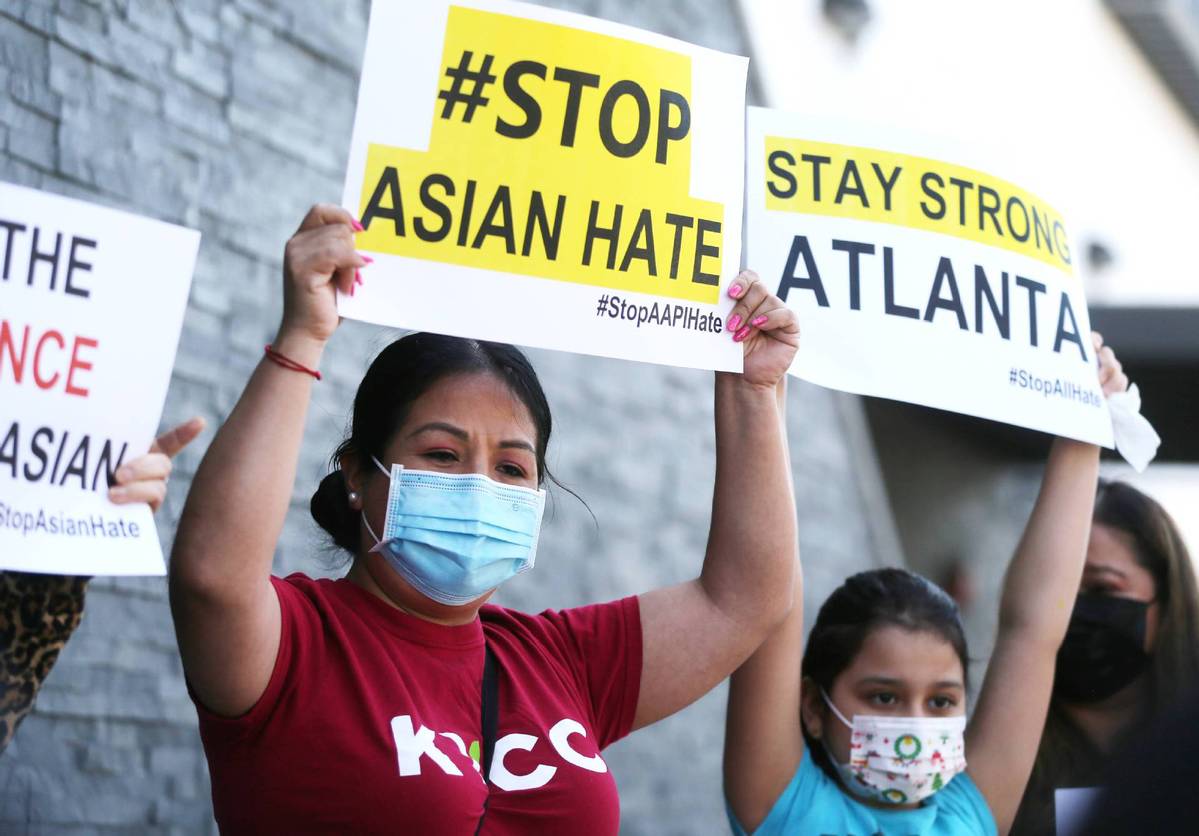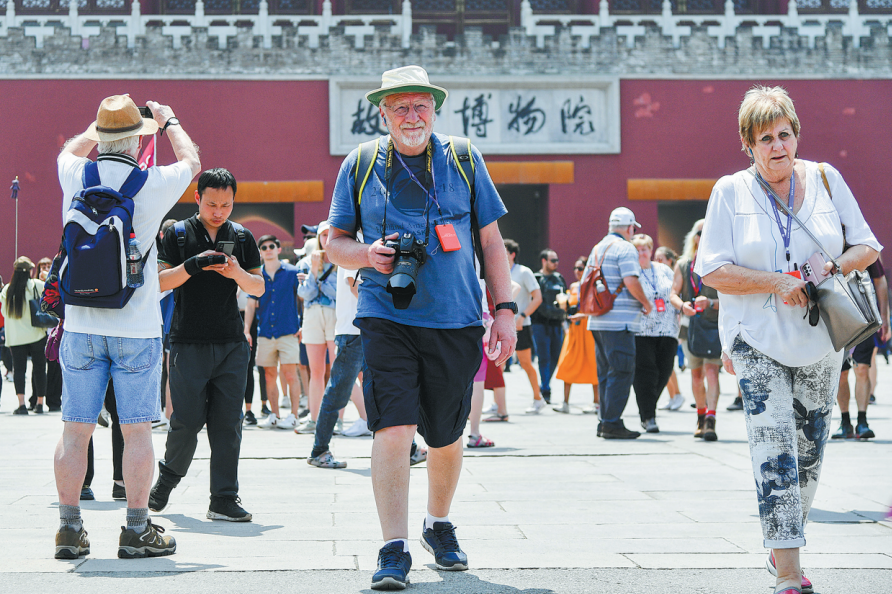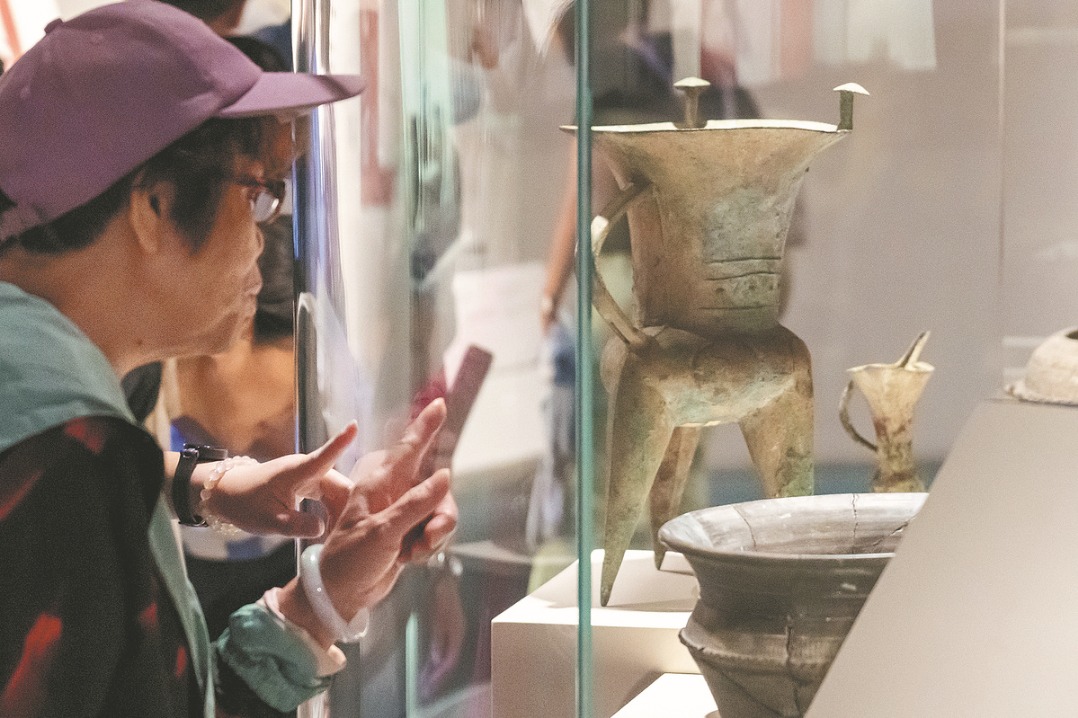Experts address Asian hate issues in US
By CHANG JUN | China Daily Global | Updated: 2021-06-01 10:40

Experts from two think tanks in the US and China shared their thoughts about Asian hate issues in the US and analyzed causes of and possible solutions to the chronic "hatred and racism", which US President Joe Biden has called "the ugly poison that has long haunted and plagued our nation".
At a Saturday webinar jointly sponsored by the Carter Center China Focus and the Center for American Studies at Fudan University, scholars said they hoped through discussions people of different backgrounds could better understand the Asian hate issue and suggested solving it by mobilizing all minorities to stand up and together for solidarity.
Prejudice and discrimination against Asian Americans are on a sharp increase in the US since the outbreak of COVID-19 pandemic last year, scholars and experts agreed. They applauded the move of the Biden administration, which signed the COVID-19 Hate Crimes Act into law on May 20.
Researchers believe that, from a historical perspective, US society in general didn't understand how much Asian Americans have contributed to the prosperity and development of America, therefore, there is a lack of appreciation throughout American history.
Gao Qin, professor of social policy at the Columbia University's School of Social Work and the founding director of the Columbia China Center for Social Policy, said her research among New Yorkers of Chinese descent has indicated that 57 percent of respondents have experienced at least one type of discrimination in everyday life, 20 percent have been threatened and harassed, and more than 60 percent of respondents believed that the discrimination against them is related to race, skin color, ancestry and national origin.
Gao said the racial discrimination experienced by New Yorkers of Chinese descent has led to high levels of stress and vigilance in their daily life.
"People felt lots of pressure and fear, they were very worried when going out, and they were afraid of being attacked if going out, so they stayed home and felt depressed, and they were on tenterhooks every day fearful of racial discrimination," Gao said.
Keisha Brown, assistant professor of history in the history department, political science, geography and African studies in the College of Liberal Arts at Tennessee State University, talked about how to understand racial discrimination in the US through trans-Pacific and historical perspectives.
Both black and Asian Americans shared the history of being shipped to the US as laborers. "Looking back to the history of Chinese immigrants, being recruited as laborers to replace what used to be (black) slave labor in the (US) South was one way Chinese immigrants came to the US," she said, implying that history might lead to identity and cultural issues.
Several scholars urged Americans to "re-establish, to read and learn, to exchange and to understand" more about Asia and Asian Americans. Chung Hoang Chuong, professor of Asian American studies who used to teach at City College of San Francisco, pointed out that racial discrimination is historical and ongoing.
Zhan Shaohua, associate professor of sociology at Nanyang Technological University in Singapore, said the US might benefit from learning from two policies in Singapore -- ethnic integration housing and ethic self-help groups. "We need to build solidarity among all minorities, Asians, African Americans and others," he said.
Jing Shiyan contributed to this story.
























